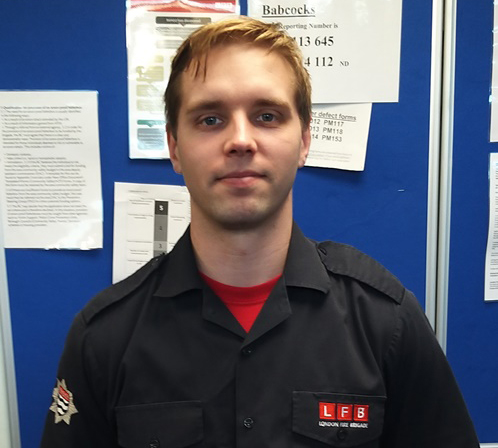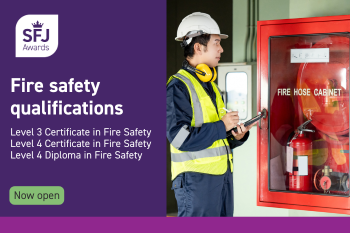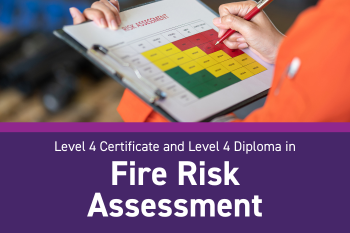Oliver Young is an Operational Firefighter Apprentice from London Fire Brigade and recently told us his insights about the role and top tips for anyone considering this career through an Apprenticeship.
Following the success of our week-long Meet the Apprentice Champions initiative to mark National Apprenticeship Week, we have decided to continue with the first ever SFJ Awards National Apprenticeship Month!

With so many exciting careers in Fire & Rescue, Policing, Probation, Health and many more, there are just not enough days in one week to shine a light on the incredible individuals championing Apprenticeships.
Prior to working for London Fire Brigade (LFB), Oliver worked at a Timber Merchants. His apprenticeship is part of his ongoing training for his role as Operational Firefighter at LFB.
“London Fire Brigade is a very large and diverse organisation with a wide range of people from different backgrounds, and different levels of experience. working for the LFB is the best job I have had – no two days are the same, and you are constantly challenged to adapt and overcome different problems with every job.
“There are a lot of avenues to explore should you wish to progress, either through learning new skills such as the Fire Rescue Unit (FRU), or through promotion to become a leading Firefighter. Working on a fire station is also very rewarding because your watch becomes like a second family, and you know someone has always got your back. The work that we do makes a genuine difference to members of the public, and this also adds to a great level of job satisfaction.”
An important part of Apprenticeships to help prepare trainees for End-Point Assessment (EPA) is a range of activities in off-the-job learning. Oliver added:
“During my days off, I have been going back over some of the notes from my training and revising areas of my apprenticeship that I found more difficult. I have done this to keep on top of the knowledge I have learned and to reduce the chance of skills fade.
“The most difficult part of my course was the End-Point Assessment day, this is because it rolled in all aspects of my 12-week training course, and my year on station into one day of multiple fire ground tests followed by a 90-minute guided discussion.
“This was particularly challenging as it required a lot of revision not only of theoretical parts of the job such as how a fire engine pump works but also practical ability as well.
“The best part about my apprenticeship was finishing the EPA and knowing that I had given it my best effort and believing that I had completed all tasks correctly. This was also a large relief due to the extra work I put into ensuring I passed.”
We asked Oliver what the future holds, now he has successfully passed the Operational Firefighter EPA:
“I hope to further my learning and skill set by enrolling onto an FRU course, following up with a water and line course, this will allow me to ride the rescue unit as well as a pump or ladder. I am looking to do this to improve my understanding of the service we provide as a Fire Brigade, and because it is an area that I am very interested to learn.”
Here at SFJ Awards, we are thrilled to be continuing with our initiative to raise the profile of Apprenticeships, even beyond National Apprenticeship Week 2021.
We asked Oliver what his top tips are for anyone considering an Apprenticeship as an Operational Firefighter, he added:
“Use the apprenticeship as an aid to you on the station training, there are some areas that I learned more information from the SFJ Awards courses, such as the JESIP principles (Joint Emergency Services Interoperability Principles), and some areas I learned more from station-based drills. The apprenticeship is great for support from your mentors and preparing for your gateway assessment and End-Point Assessment greatly helps with ensuring that you are focusing your station-based training in the right areas.”
Sign up to receive updates from us for ongoing insights from people like Oliver, supporting Apprentices in Fire & Rescue Services.





